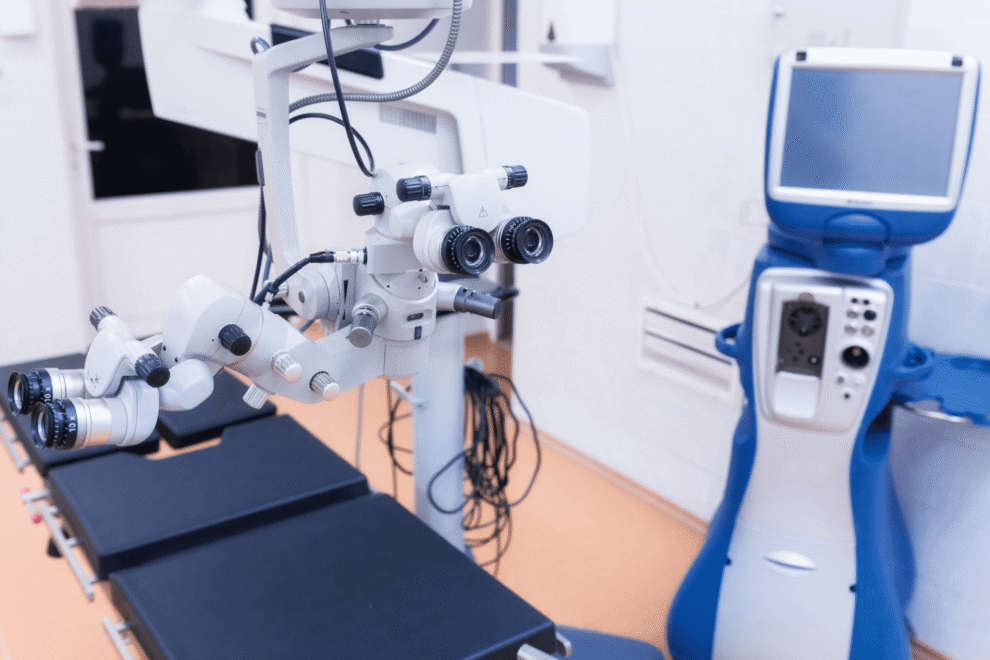Posted by: Kentucky Eye Institute in General Eye Health

LASIK (Laser-Assisted in Situ Keratomileusis) is a widely performed surgical procedure that corrects vision problems such as astigmatism, myopia, and many more by reshaping the cornea, the clear front surface of the eye, correcting the refraction problems in the eye. It has gained immense popularity due to its effectiveness in reducing dependency on glasses or contact lenses. However, before undergoing LASIK surgery in Central Kentucky, several requirements need to be considered to ensure a successful outcome and minimize potential risks.
Requirements
Stable Prescription
Candidates for LASIK surgery must have a stable vision prescription for at least one year before the procedure. Fluctuations in prescription can affect the accuracy of the surgery’s outcome.
Age
LASIK is generally recommended for individuals aged 18 and above. This is because the eyes continue to change during adolescence, and undergoing LASIK before the eyes have stabilized can lead to results not as good as expected.
Healthy Eyes
Candidates should have healthy eyes without any underlying eye diseases such as glaucoma, cataracts, or retinal diseases. Pre-existing conditions can affect the healing process and overall outcomes of the surgery, compromising the patient’s well-being.
Pregnancy and Nursing
Pregnant and nursing women are advised to postpone LASIK surgery. Hormonal changes during pregnancy and lactation can affect the stability of vision and the healing process, putting at risk the health of the patient as well as the outcome of the surgery.
Eye Infections or Injuries
Individuals with recent eye infections or injuries are generally not suitable candidates for LASIK until the eyes have fully healed. Infections or injuries can increase the risk of complications during the surgery and during the recovery process.
Eye Health
Healthy eyes is an important requirement a LASIK surgery candidate must have, however, overall health stability is as important for the success of the treatment. Chronic illnesses and conditions such as diabetes can impact the healing process and increase the risk of complications.
Process and Tips
Consultation and Screening
The first step is to schedule a comprehensive eye examination with an experienced ophthalmologist. This examination will determine if you meet the requirements for LASIK and will include tests such as corneal thickness, pupil size, and tear film evaluation.
Choose a Reputable Surgeon
Research and select a skilled and reputable surgeon who has a track record of successful LASIK procedures. Consultation with multiple surgeons can provide insights and help make an informed decision.
Realistic Expectations
Have realistic expectations about the outcomes of LASIK. While it can significantly reduce dependency on corrective eyewear, perfect vision cannot always be guaranteed. Discuss your expectations with the surgeon during the consultation.
Understanding the Procedure
Gain a clear understanding of the LASIK procedure, including its benefits, potential risks, and the recovery process. Being well-informed will help alleviate any anxiety and ensure compliance with post-operative instructions.
Preoperative Preparations
Follow the surgeon’s instructions for preoperative preparations, which may include avoiding contact lenses for a specific period before the surgery to ensure accurate measurements.
Arrangements for After Surgery
Arrange for transportation after the surgery, as your vision may be blurry immediately afterward. Having someone to drive you home is crucial.
Recovery Time
Understand that there will be a recovery period during which you may experience dryness, sensitivity to light, and fluctuations in vision. Follow the surgeon’s post-operative instructions carefully and attend all follow-up appointments.
Limit Screen Time
During the initial recovery phase, limit screen time, including that of computers, smartphones, and televisions. Staring at screens for prolonged periods can make dryness and strain worse.
Protect Your Eyes
Wear sunglasses that provide adequate UV protection when outdoors, as your eyes may be more sensitive to light during the recovery period.
Follow Activity Restrictions
Avoid activities that could potentially cause trauma to the eyes, such as swimming and contact sports, for the duration recommended by your surgeon.
Keep Follow-up Appointments
Attend all scheduled follow-up appointments with your surgeon to monitor the healing process and address any concerns.
Long-Term Eye Care
Even after successful LASIK surgery, continue to prioritize your eye health. Regular eye exams and maintaining overall health will contribute to maintaining optimal vision.
Would You Make A Good Candidate For LASIK?
In conclusion, LASIK eye surgery offers a life-changing opportunity to achieve clearer vision without the need for glasses or contact lenses. However, meeting the necessary requirements and following the provided tips are crucial for a successful outcome. By carefully selecting a skilled surgeon, having realistic expectations, and diligently adhering to preoperative and post-operative instructions, individuals can increase their chances of a smooth LASIK experience and enjoy improved vision quality. Remember, informed decisions and a commitment to post-operative care are key to achieving the full benefits of LASIK surgery. Here at Kentucky Eye Institute we are ready to take the people of Central Kentucky in by offering the best care provided by the best professionals. Schedule your appointment today and have a consultation about LASIK surgery with one of our specialists.
